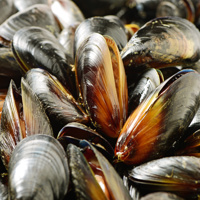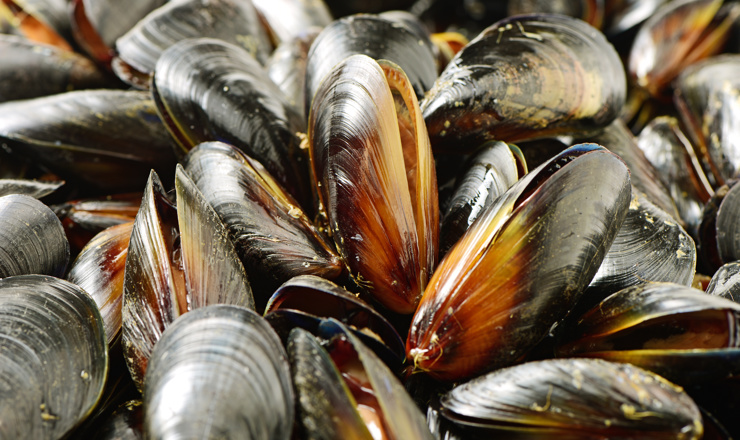

Date
September 2021

In recent years, TripleNine has been experimenting with methods to produce mussel meal in a commercially viable way. In collaboration with a number of skilled partners from public, private and research-based organisations, we have aimed to provide a solution in which mussels are grown to compensate for the environmental impact of aquaculture and agriculture by absorbing nitrogen and phosphorus from the ocean. As a result, mussels reduce eutrophication.
“We see great potential in mussel meal due to growing interest in using mussels as a mitigation tool, “says Kenneth Storbank, CCO. “Blue mussel farming is sustainable and improves the environment; therefore, pursuing this raw material aligns with our mission to add value to marine resources responsibly.”
Mussels used for mitigation purposes are typically undersized and not useable for human consumption. However, high protein levels, high levels of Omega 3s, and an amino acid profile similar to fishmeal make mussel meal an ideal candidate as an aquaculture feed ingredient.
“Our biggest challenge is the ash content of whole mussels”, says Jessica Jaxion-Harm, Research Scientist, TripleNine. “Due to a lack of studies with whole mussel meal, particularly with commercially relevant diets, we decided to perform fish trials at DTU Aqua last year with two different mussel meals: de-shelled mussel meal and a whole mussel meal with slightly reduced ash”.
Feed with commercially relevant low fishmeal levels (10%) was fed to Rainbow trouts. Even at low levels of fishmeal, mussel meal replacement resulted in good growth (even a tendency for higher growth with 50% replacement). However, feed with high ash levels did not perform as well, therefore TripleNine has developed a new way to remove mussel shells.
“We are continuously fine-tuning our process, however, TripleNine is able to produce de-shelled mussel meal and is now waiting for politicians to enable large-scale production of mitigation mussels and provide the raw material basis for scaling up production”, says Kenneth Storbank.